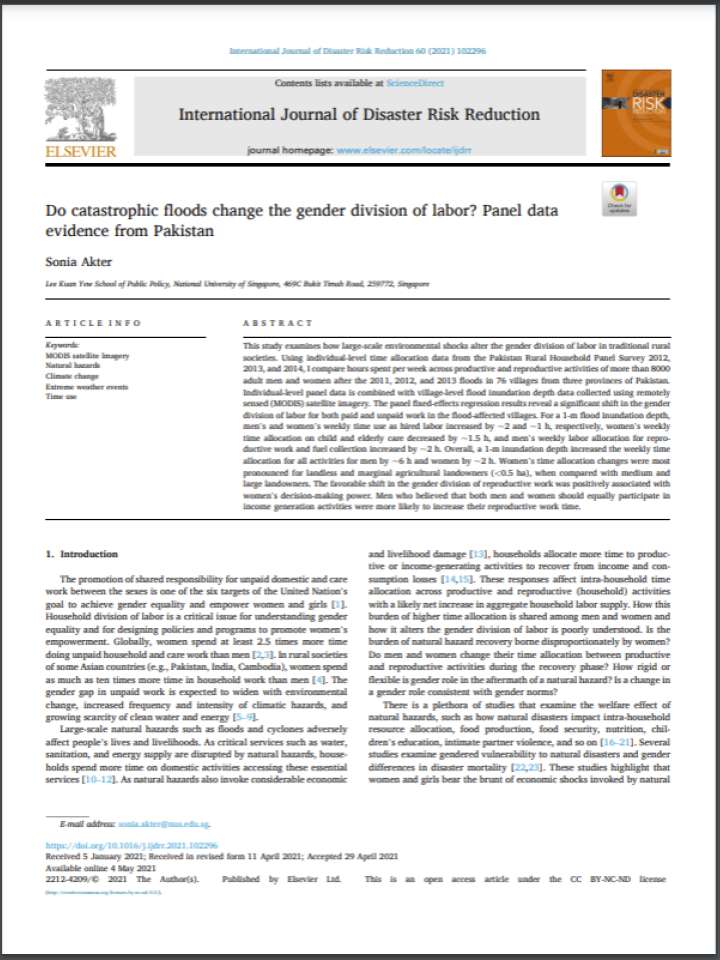Do catastrophic floods change the gender division of labor? Panel data evidence from Pakistan
This study examines how large-scale environmental shocks, specifically floods, alter the gender division of labor in traditional rural societies using individual-level time allocation data from the Pakistan Rural Household Panel Survey 2012, 2013, and 2014. The promotion of shared responsibility for unpaid domestic and care work between the sexes is one of the six targets of the United Nation’s goal to achieve gender equality and empower women and girls. Household division of labor is a critical issue for understanding gender equality and for designing policies and programs to promote women’s empowerment.
The results revealed a significant:
- increase in men’s and women’s time use as hired labor;
- decrease in women’s time use in care work; and
- increase in men’s time use in domestic work
These findings differ from the conventional narrative, which over-whelmingly suggests that women’s welfare declines after a natural hazard due to their double burden of productive and reproductive work. The conventional narrative was formed largely based on the pre-existing gender gap in unpaid work and assumed that a natural hazard would inevitably exacerbate the gap. However, the gender dynamic in the aftermath of a natural hazard can vary depending on the economic op-portunities available to men and women in the hazard recovery phase and the gender norms that govern the gender division of labor in society.
Explore further
